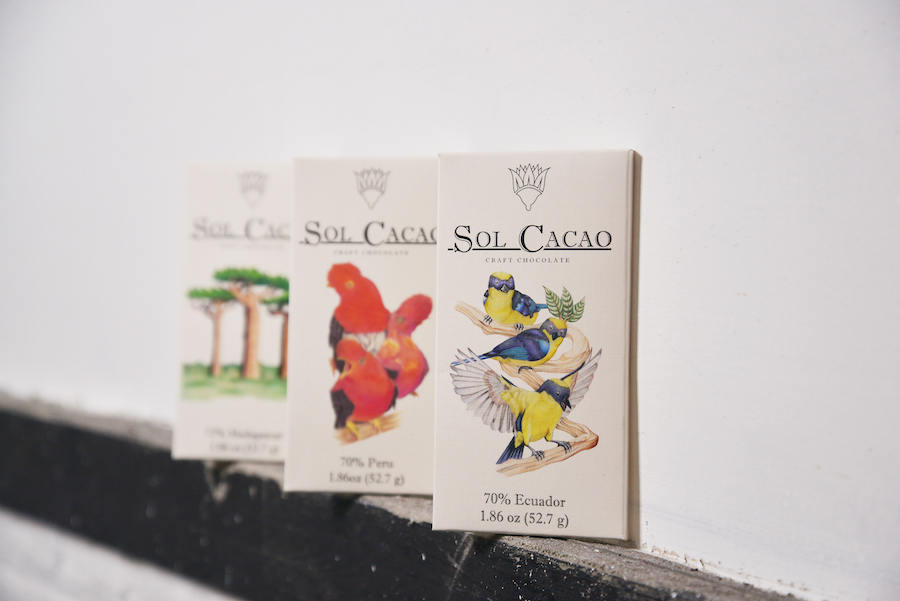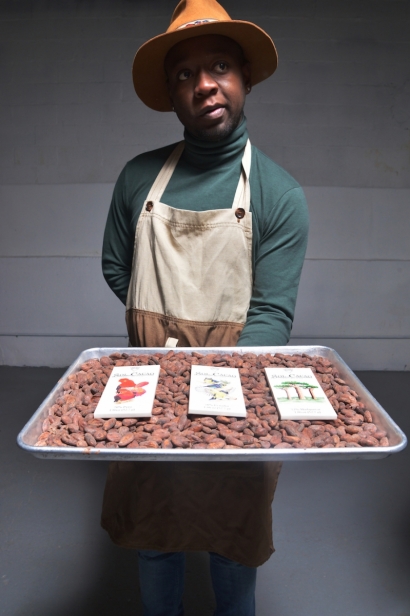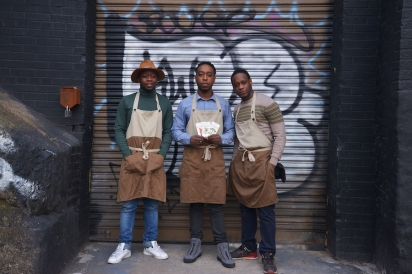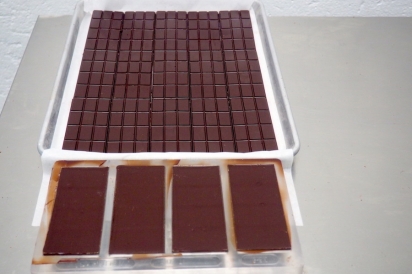A World of Chocolate in the Bronx
Picture a pair of Caribbean islands right off the coast of Venezuela. Fertile soil, tropical climate, lush rolling hills crowded with row after row of cacao trees. Trinidad and Tobago make up one of 15 countries around the world that produce high-quality cacao.
Dominic, Nicolas and Daniel Maloney, co-owners of Sol Cacao, grew up there—and even years after moving to New York City during their primary school years, they still have cacao pumping through their veins. Recognizing that the abundance of pure chocolate they had known in Trinidad wasn’t readily available here in the U.S., they created a chocolate company that combined their interest in nature, health and agriculture.
The three brothers, all 18 months apart, were lucky enough to attend school in the same state, making it easy to curate the vision of Sol Cacao. Encouraged by their family—which has been farming in Trinidad for generations—their dream of producing artisanal chocolate bars was rooted in continuing a family legacy in agriculture.
“When we got to college, chocolate just made sense for us,” says Daniel, youngest of the three, who works as an engineer and handles the business end. “It was our way of getting back to the land and a way to work in agriculture, and be involved in sustainability, climate change, all the big [issues] that are important to us. We wanted to fight against it in our own way, and once we decided on chocolate, it was a way to do that and preserve the history and culture.”
Walking into their new production facility in Port Morris on a cold Saturday morning, it’s apparent that, while bare, it holds endless potential waiting to be unearthed. A makeshift roaster sits prominently in the large open space, and the smell of roasting cacao vaguely resembles the scent we all know to be chocolate.
“There aren’t as many machine options for chocolate making, especially compared to the coffee industry,” says Dominic Maloney, “We’re, like, 30 years behind them.” Dominic oversees the daily operations at Sol Cacao. He shows off their roaster, one that looks more like an invention from Honey, I Shrunk the Kids than a state-of-the-art machine. “There are a lot of people experimenting, creative people, trying out new things,” he continues, his love for the craft apparent as he proudly takes us through the creative process. “There’s no blueprint for chocolate yet.”
After the whole beans are roasted, they’re tossed into the makeshift machine and are agitated to remove the outer husk and shell, spouting out cocoa nibs. The nibs are then ground with raw cane sugar for 48 to 72 hours, tempered, molded into perfect bars, wrapped in gold foil and placed lovingly into a linen paper wrapper, all done by hand.
The health properties of chocolate also played a role in the creation of their family business, as they all maintain a vegetarian lifestyle. This aspect of the business has been particularly significant to Nicolas Maloney, a registered nurse and “visionary” at Sol Cacao. “Food plays an important part of your life, from when you’re young to very old,” he says. “It’s important to put healthy things in your body.” Cacao in its pure form contains heart-healthy anti-inflammatory properties and flavonoids. “After doing the research—all kinds of studies have been done at Harvard, NYU, Yale,” he says they convinced him that eating chocolate doesn’t just make you feel good, but it’s beneficial to your overall well-being.
But don’t think you can just pick up any bar at your local drug store and call it a “super food.” Most mass-produced chocolates are loaded with fillers, stabilizers, palm oil, preservatives and chocolate flavorings, rather than the real-deal beans.
Currently, Sol Cacao offers three single-origin bars, from Peru, Ecuador and Madagascar. All are vegan and full of said health benefits. If you’re wondering where the Trinidad bar is, sadly trade policy makes it difficult to import the beans stateside, though Daniel recalls a funny story just a few years back “smuggling” a suitcase full of cacao back with him to create a limited-edition bar. They hope to continue to add more origin bars as they grow, showcasing chocolate strains from other cacao-producing countries and supporting small farmers. All the bars are fair trade, which ensures the farmers receive adequate compensation. That’s important to the Maloney brothers, due to their family history.
The result is dark and smooth; it melts to a thick velvet coating in your mouth—decadent and complex, slightly bitter, sour and a touch sweet. Each bar has a different flavor profile—that’s the beauty of a single-origin product: the purity of the beans and the ability to taste the distinct notes of each strain of cacao, flavored by its native soil.
For more information on Sol Cacao or to purchase the chocolate bars visit SolCacao.com.








